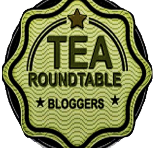 Here's a myth that needs to be debunked - that all teas are organic. Here's another - that because they are grown in 'poor' countries who cannot afford fertilizers, all teas are, therefore, organic. Wrong, wrong, wrong. Teas, like all other agricultural products need fertilizers to grow and thrive. If you farm organically, you make a conscious choice to use substances that are natural, free from artificial substances and pesticides. More on Organic in later posts - it is, of course, one of the basic components of living Green.
Here's a myth that needs to be debunked - that all teas are organic. Here's another - that because they are grown in 'poor' countries who cannot afford fertilizers, all teas are, therefore, organic. Wrong, wrong, wrong. Teas, like all other agricultural products need fertilizers to grow and thrive. If you farm organically, you make a conscious choice to use substances that are natural, free from artificial substances and pesticides. More on Organic in later posts - it is, of course, one of the basic components of living Green.Because of the confusion among terms and muddied thinking, the USDA (United States Department of Agriculture) developed a standard for what could be officially termed "Organic" in this country. This National Organic Program (NOP) became the formal code. Look for this seal the next time you are at the grocery store. 100% organic products carry this seal. It works like this:
- Certifying agencies apply to the USDA and receive approval to certify companies (like us)to ensure we adhere to the NOP standard.
- We then contact one of these certifying agencies, fill out an application and schedule an on-site annual inspection.
- Once the inspection takes place and if everything is found to be compliant, the certifying agency issues an Organic Certificate.
- Voila, we are now Organically certified!
Today was my annual inspection. They checked audit trails to make sure what we imported and what we sold matched up. They compared lot numbers on purchase orders and invoices. They looked for segregation of organic and conventional materials. They asked how we managed pest control, what we used to clean our packing area, how we labelled our products, how we educated our employees, how our warehouse handled our products.....in short, it was intensive. As it should be. That is what ensures the integrity of the organic program. You can then rest assured that when we say it is certified Organic, it is.


